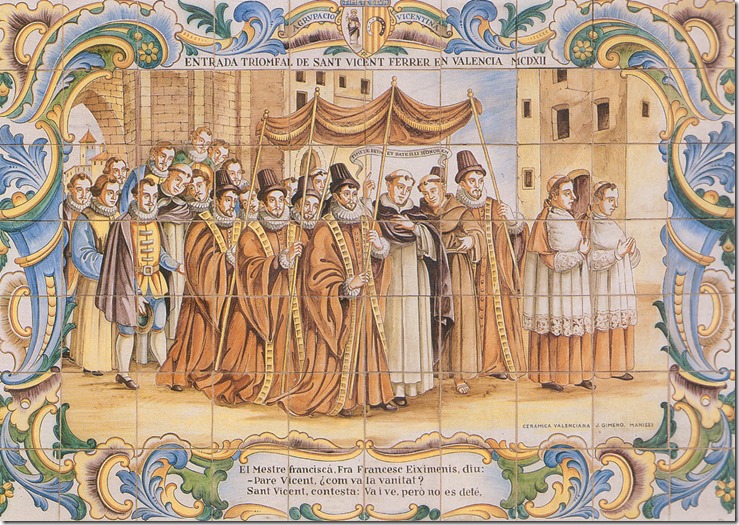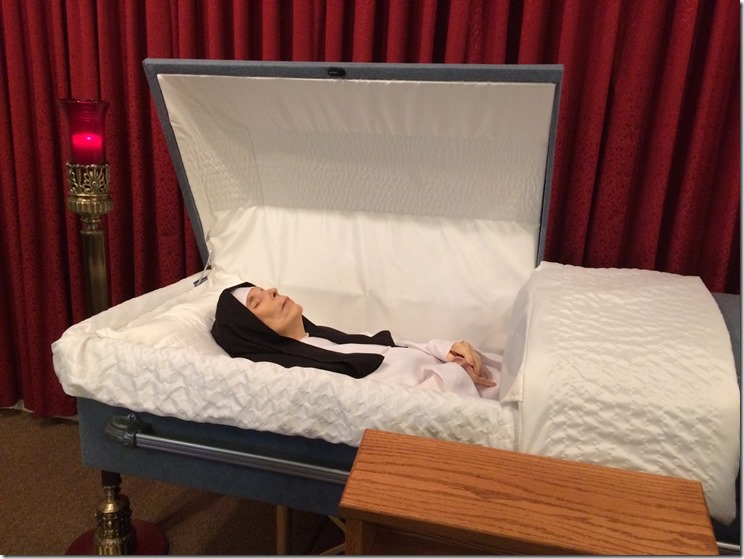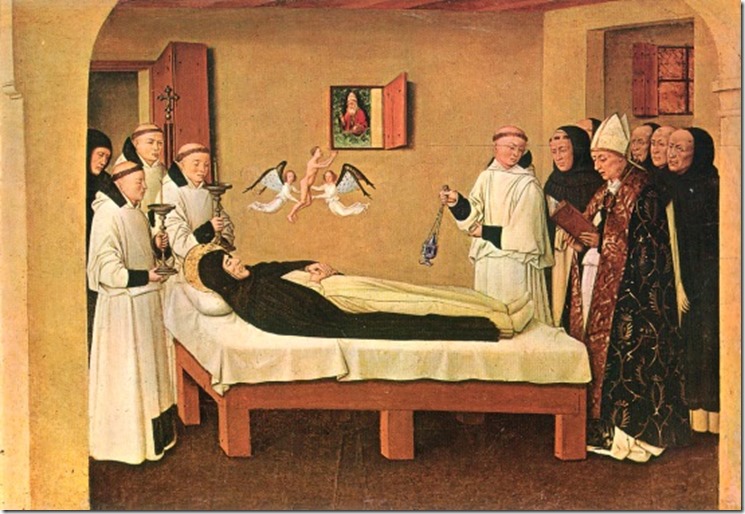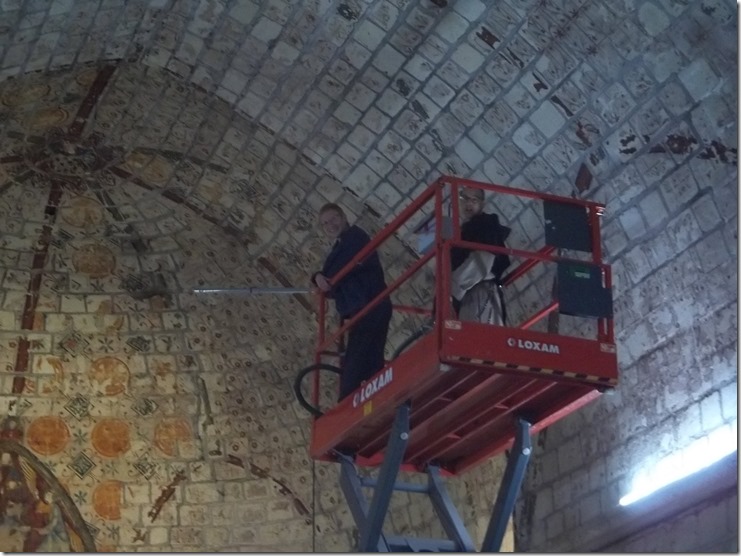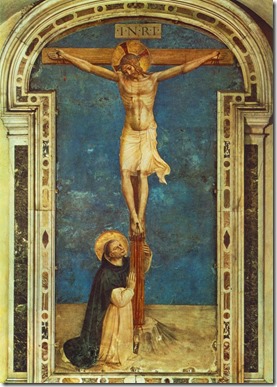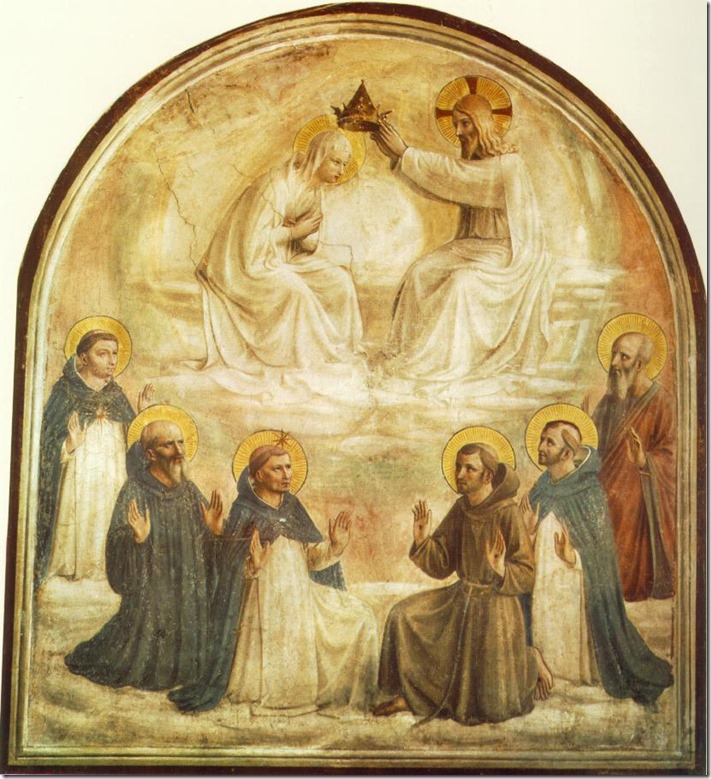The Synod on Synodality
The Synod of Bishops: a change in the government of the Church
1. A New Feature of Vatican II
1.Establishment of a council of bishops by Pope Paul VI
The Synod of Bishops is a new institution, established during the Council by Pope Paul VI in the Motu Proprio Apostolica Sollicitudo of September 15, 1965.
What is it? It is a “permanent council of bishops for the universal Church, subject directly and immediately to the authority of the Supreme Pontiff”.
Its members are the patriarchs, the major archbishops and metropolitan bishops, the presidents of the episcopal conferences and a specific number of bishops elected by their peers within these conferences.
On the following October 28th, the conciliar decree Christus Dominus on the pastoral office of bishops in the Church confirmed the existence of this assembly of “bishops chosen from the various regions of the world to provide the Supreme Shepherd of the Church with more effective assistance within a council which has received the name of Synod of Bishops” (no. 5).
Its function is only consultative. It has no decision-making power unless, in specific cases, it has received this power from the Roman Pontiff, who must then ratify the Synod’s decisions.
The 1983 Code of Canon Law (C. 342-348) places this new structure just after the Pope and before the Cardinals.
2.Increasing openness to non-bishops
As early as 1965, Paul VI made provision in his Motu Proprio for the possible participation of non-bishops, limited to 15% of the membership. Those concerned were only clerics, or representatives of religious institutes, or experts appointed by the Pope.
In 2006, Benedict XVI opened the synod to lay people, but without the right to vote (Ordo Synodi episcoporum).
However, on April 26, 2023, Cardinal Grech, Secretary General of the Synod, and Cardinal Hollerich, General Reporter, announced that the percentage of lay people had risen to 21% and that they would have the right to vote. The following should be noted:
– the novelty of having provisions contrary to the law currently in force announced by members of the Synod and not by the Pope – even if he obviously consents. But Pope Francis is not very scrupulous when it comes to laws, even those of the conciliar Church; clearly, it was necessary to ‘act fast’.
– We should also note the oddity of having lay people vote in an assembly of bishops: is this still a “Synod of Bishops”?
– Finally, it should be noted that the proportion of new voters (21%) is not insignificant in an assembly that can adopt its final document by a two-thirds majority.
In addition, the Synod is mixed: 50% of the laity will be women. Many young people have also been invited 1.
All these people, no doubt hand-picked, are supposed to represent the Christian people. There is room for doubt.
3.A consultative body transformed into a governing body
It should be borne in mind that the Apostolic Constitution Episcopalis communio of September 15, 2018, restructured the Synod of Bishops.
It considerably increases the role and competences of the Secretary General of the Synod, who becomes the real driving force behind synodal activity by mandate and under the direct guidance of the Supreme Pontiff, who is no longer content to receive synodal work passively, as has been the case until now, but actively promotes, coordinates and directs it.
This raises the question of whether the Synod of Bishops remains a merely consultative body for the Pope, or whether it has become an organ of government, independent of the Curia 2.
2. The Revolution in Progress
On June 20, 2023, the Vatican presented the Instrumentum laboris – working instrument – a preparatory document for a “Synod on Synodality”, which is due to bring together 364 participants in Rome from October 4 to 29, 2023.
The document was drawn up on the basis of diocesan synods organized around the world over the last two years to consult the “people of God” on their wishes regarding the life of the Church. Summaries have been drawn up for each country and then for each continent.
So much time, energy and money wasted on talking, and this will continue for almost a month at the Vatican (think of the money it costs: travel from abroad, meals, accommodation). Meanwhile, souls are falling into Hell through ignorance of the truths that need to be believed in order to be saved.
-
Destruction of authority
The central question posed by the Instrumentum laboris, which is present in numerous technical sheets, is: “Who decides in the Church, and how?”
The document raises the following question:
Is authority a form of power derived from models offered by the world, or is it a genuine service? […] The continental assemblies have denounced the phenomena of appropriation of power and decision-making processes that have led to the various forms of abuse – sexual, financial, spiritual and of power – that have come to light in the Church in recent decades. Is responsibility for dealing with abuse individual or systemic?
The document suggests that responsibility for “abuse” may lie with the system itself, i.e. the way in which the exercise of authority has been organised in the Church up to the present day. We can see the direction in which the Instrumentum laboris intends to steer the debate.
We will therefore have to discuss:
the manner in which the ministry of the bishop is exercised; […] on the degree of authority to be attributed to episcopal conferences. […] Changes may need to be made to Canon Law.
The following should be considered:
cases where the authority feels unable to confirm the conclusions of a community discernment process, and takes a decision in a different direction; […] in which cases a bishop might feel obliged to take a decision that differs from the considered opinion offered by the consultative bodies.
Note the qualifier “considered” given to the opinion of the consultative bodies, which discredits the bishop’s opposition in advance.
But the Synod will not only question the authority of the bishops. It must examine:
the understanding of authority in the Church at different levels, including that of the Bishop of Rome.
The Instrumentum laboris raises the (foreseeable) case of “local Churches taking different directions”. What is to be done? The Pope is asked to examine “the possible scope for a diversity of orientations in different regions”. One wonders what will remain of the unity of the Church.
* A look back at the Sauvé Report
It will be recalled that in November 2018, the French Bishops’ Conference entrusted an “independent” commission chaired by former senior civil servant Jean-Marc Sauvé with the task of resolving the “questions raised by the sexual abuse committed by French ecclesiastics”.
It is interesting to note that Jean-Marc Sauvé, a progressive Christian by family tradition, had been vice-president of the Conseil d’Etat, a member of the Socialist Party and an adviser to Badinter. Among the members of the commission he had chosen: Nathalie Bajos, director of INSERM where she is in charge of the “Gender, sexual and reproductive health” team; Sadek Belouci, chairman of the advisory board of the Fondation de l’Islam de France; Antoine Garapon, a progressive Christian judge who called for a vote for Macron in 2017; Christine Lazerges, a Protestant with a law degree and a former Socialist MP, and so on.
The commission found only 35 files on clerics convicted between 1950 and 2020 – still too many, but still not many. As the abused children or their parents did not always denounce the facts, the commission tried to survey the faithful: posters on parish doors, surveys, etc. The result was a sample of 171 victims from which, by statistical extrapolation, the commission arrived at a figure of 330,000 people abused.
However, INSEE immediately reacted, saying that the sample was not representative, while the Catholic Academy of France protested, pointing out “the implausibility of the figures and the ideological spirit that governed this work”, resulting in a “profoundly inaccurate, even erroneous” result. Jean-Marc Sauvé, a member of the said Académie, immediately resigned, as did Mgr de Moulins-Beaufort, President of the French Bishops’ Conference (also a member).
The bishops of France nevertheless took note of the “Sauvé Report” as if they were eager to humiliate themselves publicly, but they humiliated the Church: Bishop de Moulins-Beaufort asked for forgiveness on his knees in front of journalists at the annual episcopal assembly in Lourdes.
What is interesting to note here is that, in its conclusion, the Report refers to abuse as a “systemic phenomenon”, thereby accusing the system, i.e. the institution of the Church itself, of being responsible for failing to curb the crimes of its clergy 3.
However, in the Instrumentum laboris of the Synod of 2023, we note the following question, mentioned above:
Are responsibilities for dealing with abuse individual or systemic?
Everything fits together.
2.The Synodal Church’s way of proceeding:
a conversation in the Spirit
Note that the conciliar Church has changed its title. It is now called the “Synodal Church”. Archbishop Benelli had invited Archbishop Lefebvre’s seminarians to be faithful to the “Conciliar Church” 4. Are we now going to be asked, in order to be Catholics, to be faithful to the “synodal Church”? In fact, even the Pope and the bishops will be required to do so, if we refer to the guidelines set out in the Instrumentum laboris (see above).
But let’s continue reading the document:
The term “conversation in the Spirit” does not indicate a simple exchange of ideas, but that dynamic in which the word spoken and listened to generates a familiarity that enables the participants to become intimate with one another.
The precision “in the Spirit” identifies the authentic protagonist. […] Conversation between brothers and sisters in the faith opens up the space for listening to the Spirit together. […] In the final documents of the continental assemblies, this practice is described as a Pentecostal moment.
The “conversation in the Spirit” will take place in three stages:
The first stage is devoted to each person speaking from his or her own personal experience. The others listen in silence.
This is the height of modernist subjectivism.
Each member of the group then takes the floor, not to react or counter what has been heard by reaffirming his or her own position, but to express what, in the course of listening, has touched him or her most deeply, and what he or she feels most challenged by.
The fact that there may be a truth, and therefore an error if we deviate from it, is of no interest here. What counts is the “feeling”.
The third stage consists of identifying the key points that have emerged, and reaching a consensus on the fruits of the joint work. […] We need to be discerning, paying attention to the marginal voices, and not overlooking the importance of the points on which we disagree.
To ensure that this process runs as smoothly as possible, it is important to have well-trained facilitators:
Given the importance of conversation in the Spirit in animating the life of the synodal Church, training in this method, and in particular the challenge of having people capable of accompanying communities in this practice, is seen as a priority at all levels of church life.
Suitable premises will also be needed:
On June 20, 2023, in the Vatican Press Room, Father Giacomo Costa S.J., consultant to the General Secretariat of the Synod, announced that the assembly would be held in the Paul VI Audience Hall:
the room can be set up with round tables around which working groups of ten or so people can be seated.
3.The icing on the cake: a discussion on the ordination of married men to the priesthood and the diaconate for women.
The Instrumentum laboris invites Synod participants to:
reflect on the ordination of married men to the priesthood and the ordination of women to the diaconate.
In a book entitled “Rien d’autre que la vérité. Ma vie aux côtés de Benoît XVI” 6, published by Arthège in 2023 after the death of Benedict XVI, Archbishop Gänswein, who was Benedict XVI’s private secretary, explains that Benedict XVI had sent Cardinal Sarah seven pages on the priesthood, which he had written without considering publishing them, but allowing him to “use them as he wished”. Cardinal Sarah quoted them, but it is inaccurate to say that the work was as if co-authored by Cardinal Sarah and Benedict XVI, as the publisher has taken the liberty of presenting it.
Now that Benedict XVI is dead, it is not surprising to see Pope Francis bringing out the dossier again.
In any case, the candidates are ready-made: the married deacons who have been officiating every Saturday evening in parishes without priests for many years are the perfect candidates for the conciliar Church… except that they will not have done any priestly studies worthy of the name.
-
As for the “ordination of women to the diaconate”, the term is inappropriate and misleading. The diaconate is a sacrament that is a participation in the sacrament of Holy Orders, which women cannot validly receive. They cannot therefore be validly ordained deacons. At most, they can only receive a kind of blessing to distribute communion, bring it to the sick, celebrate funerals and preach, which they have been doing for a long time. But this will give them an official status that will put it in people’s minds that one day perhaps they will be able to accede to the priesthood.
We cannot object to the deaconesses of the primitive Church. Their functions were to care for the poor and sick of their own sex; to act as intermediaries between women and the leaders of the Christian community; to visit pagan families where the entry of a deacon or priest would have been difficult or inappropriate; to be present at women’s meetings with the bishop, priests or deacons; to assist the bishop in administering baptism to women, and so on. But they were expressly forbidden to perform any liturgical function such as serving at the altar or preaching 7.
In short, for this Synod, faith is now just a question of experience – which means respecting the experience of other religions – and it is the “people of God” that now takes the place of the teaching Church.
Permanent democracy, a new Protestant Pentecost, these are the characteristics of this “sSynodal Church”, which has little to do with the Catholic Church instituted by Our Lord Jesus Christ, opposing its divine constitution, which gives authority to the Pope and, through him, to the bishops, successors of the Apostles, and not to the people.
The consequence can only be, in the long run, the dissolution of this conciliar Church, and its fragmentation into so many diocesan synods opposed to each other.
3. Everything Started
With the Second Vatican Council
It should be noted, however, that this outcome is not an innovation of Pope Francis. It all started with the Second Vatican Council.
The Constitution Lumen Gentium of November 21, 1964 introduced a new definition of the Church, now called the “People of God”.
The expression came from the new theology condemned by Pope Pius XII in the encyclical Humani Generis, represented in particular by the Dominican fathers Chenu and Congar, whom Pope John XXIII had appointed as experts at the Council.
Archbishop Lefebvre considered this new conception to be extremely serious:
There is a new ecclesiology, that’s clear. […] In my opinion, it is exceptionally serious: just to be able to say that there could be a new ecclesiology. We are not the ones who make the Church, we did not make her, not the Pope, not the bishops, not history, not the councils. It was made by Our Lord. […] It does not depend on us. So how can we suddenly say: “Now, since Vatican II, there is a new ecclesiology”, and this is said by the Pope himself. It’s unbelievable 8.
The Constitution Lumen Gentium also insisted on the common priesthood of priests and faithful, a notion emphasised in the New Mass; while the rites of ordination of priests and consecration of bishops were modified to make it clearer that these ceremonies transmit a particular power 9.
The 1983 Code of Canon Law promulgated by John Paul II put all this into law, inverting the pyramid of the Church by placing lay people before clerics, and even allowing them – men and women – to enter the sanctuary during liturgical ceremonies:
The new Code of Canon Law, continued Archbishop Lefebvre, is an enterprise aimed at destroying the distinction between the priest and the layman. […] This is extremely serious. It is the ruin of the Church 10.
4. Reductive Groups and Governing Cores
Is the Holy Ghost really at work in this kind of synod? We may well doubt it. Not only because He cannot be present in an undertaking that seeks to overturn the divine structure of the Church, but also because his modus operandi bears a striking resemblance to the techniques of manipulation perfected by the Revolution and analysed in the 19th century by Augustin Cochin.
Adrien Loubier wrote a book about them in 1975, with a preface by Marcel de Corte, entitled Groupes réducteurs et noyaux dirigeants (Reductive groups and governing cores) 11. The book is useful for studying methods of revolutionary action in any environment (political, trade union, religious, etc.).
For example, get twelve people around a table to understand the need for change in the structure to which they belong.
Two basic principles will guide the discussions:
-
firstly, absolute freedom for the participants to say and think what they want. To each his own truth, his own convictions, his own opinion.
-
secondly is the equality of the deliberators. If one of them could impose his idea, his point of view or his experience, there would be no more freedom. It follows that there is no objective truth, only opinions.
The meeting naturally becomes a series of divergent presentations, of contradictory statements. This is generally referred to as a “round table” discussion.
How are we going to get through this jumble? It will be the role of the (experienced) facilitator to convince the group, in the name of fraternity, of the need to unite to form an average opinion, the result of opinions that are all equal. To achieve this, everyone must be prepared to give up something of their personal opinion. But if everyone has the common will to unite around this common opinion, the group will be that much stronger.
Around the table, the deliberators are now united by the (fictitious) need to draft their joint motion. The result is a mishmash of ideas and differing opinions, leading to a great deal of confusion. But unity is the order of the day. It is therefore necessary to agree on a basis that is likely to attract votes. Given the differences of opinion, the joint motion can only be a common minimum. This is what Augustin Cochin calls “the law of reduction”.
The participants are then led to abandon convictions that they now relegate to the rank of opinions.
And the process continues.
At the next meeting, some of the participants pointed out that certain points needed to be reconsidered, posing difficulties of application that complicate the problem. The confusion continued to grow. While further cuts were being made, a selection process was beginning to take place among the men:
-
the weakest personalities – the most numerous – will be completely disorientated, and ready for any reform or questioning, as long as a leader makes them believe that they are the expression of the general will; or else, disgusted, they will take refuge in absolute relativism. They are recycled.
-
a strong personality may refuse to get involved, defending the truth. If they don’t leave by slamming the door – a departure that the moderator will then comment on with scorn or mockery – they will be asked more or less politely to leave the group if they persist in staying and defending their position.
Rid of those who might block the system, the presenter will leave the floor to the servile talkers, devoid of convictions and doctrine, who will inevitably come forward. The system has its hacks. Together with the moderator, they will form the core group, the governing core, that will drive the group forward in the direction decided by the organisers from the outset. The final motion will be unproblematic and met with enthusiasm.
The system will have performed a veritable sociological brainwashing.
Is this how the Synodal discussions went?
In any case, we will see that the conclusions of the Synod were exactly what the Instrumentum laboris wanted them to be. The moderators worked well.
The democratic aspect seems to be nothing more than an appearance to make it easier to accept the revolutionary reforms decided in advance by Pope Francis.
5. Review of the October 2023 Synod
At the end of the Synod, a “Summary Report” was published. The various proposals that make up this Report were voted on by the members.
The ordination of married men and the diaconate of women did not attract enough votes for the moment.
But it is important to understand that the current text is not final. It will serve as a working instrument (Instrumentum laboris) for the Synod of October 2024, which itself will still need papal approval to have authority.
The text of the Report allows us to see where we are in the transformation of the Church.
-
Changing structures
During the Synod, there was constant talk of “changing” structures.
This can be seen, for example, in proposal I, 1, e, which states that we must “tackle the structural conditions that have allowed abuses to occur”. This is mainly an allusion to pedophilia, which is used as a pretext to attack the hierarchical constitution of the Church as if it had something to do with it.
Let us quote II, 9, g:
The synodal process shows that it is necessary to renew relationships and make structural changes to welcome the participation and contribution of all.
It is the dissolution of the hierarchy in the “people of God”. The rest makes this clear.
2.Distribute the powers of the hierarchy
among all the members of the Church
3. Necessary reminder of Catholic doctrine
We quote from the 1917 Code of Canon Law, an expression of the centuries-old wisdom of the Church assisted by the Holy Spirit 12.
4.Divine origin of a clergy distinct from the laity (C. 107)
Of divine institution, there are clerics in the Church who are distinct from the laity, even if not all the ranks of the clergy are of divine institution.
5.Definition of clerkship (C. 108)
Those vowed to the sacred functions, at least by the first tonsure, are called clerics.
The word cleric comes from the Greek “cleros”, which means first “lot” and then “share obtained by lot, inheritance”. Clerics are so called because they are “the Lord’s portion”, or because “the Lord is their portion”. At the tonsure ceremony, the psalm “Dominus pars hereditatis meae” is sung.
6.Notion of the sacred hierarchy (C. 108 § 3)
Of divine institution, the sacred hierarchy:
– as founded on the power of order, is composed of bishops, priests and ministers;
– as founded on the power of jurisdiction, is made up of all those who have received the power to govern the faithful. It comprises the supreme pontificate and the subordinate episcopate. Other levels have been added to the ecclesiastical institution.
The hierarchy of order is made up of all the clerics who are vested with the power to celebrate the holy mysteries of religion.
The hierarchy of jurisdiction is made up of all those who have been given the power to govern the faithful, either by teaching them or by enacting or applying laws or precepts.
Magisterium is a part of jurisdiction because it is founded not only on knowledge of doctrine, but also on the authority to teach, which is not possessed by all indiscriminately, but was given by Our Lord to the Apostles and their successors: “Go and teach all nations” (Mt 28:19); “O Timothy, guard the deposit” (I Tim 6:20).
7.Differences between the power to order and the power of jurisdiction
8.Purpose
– The power of order is primarily a sacramental power.
Its object is above all the sacrament of the Eucharist, then the other sacraments by way of consequence; secondarily it refers to the acts of worship themselves and to the sacramentals (Summa Theologica of Saint Thomas, II-II q. 39, a. 3).
– The power of jurisdiction is concerned with government and teaching.
9.Origin
– The power of order comes from God.
– The power of jurisdiction comes from the ecclesiastical superior (except the power of the Supreme Pontiff).
10.Method of conferral
– Order is conferred by ordination.
– Except for the jurisdiction of the Supreme Pontiff, which comes from Our Lord, jurisdiction comes from the ecclesiastical superior. This is known as the ‘canonical mission’. By canonical mission we mean the deputation given to govern the faithful, in the name of the authority, with the assignment of specific flocks and territory. This is known as ordinary jurisdiction.
In the current crisis, because of the state of necessity in which souls find themselves, there is a jurisdiction without an assigned territory, which is given by the Code on a case-by-case basis according to the needs of the souls of the faithful. This is known as “supplied jurisdiction”. It is based on the General Norms of Canon Law, which state that the first law in the Church, to which all other laws are ordered, is the salvation of souls.
In order to acquire ecclesiastical jurisdiction, it is necessary 1) by divine law to be baptised; 2) by ecclesiastical law, to be of the male sex, enrolled in the clergy, at least as a general rule, and not to be subject to any censure by the Church.
It is not impossible for the Supreme Pontiff to entrust some ecclesiastical jurisdiction to a lay person. However, it is certain that today women cannot validly acquire ecclesiastical jurisdiction, as the Pope never grants such a dispensation. This incapacity is at least of ecclesiastical law; several authors maintain that it is of divine law.
11.Extension
The power of order cannot, in substance, be taken away or limited (a priest always remains a priest, even in Hell, because his soul has received an indelible character); but in its exercise it can be suspended or limited by the ecclesiastical authorities.
12.Communicability
– The power of order can never be communicated to another person in its substance (C. 210): one must have been ordained to be a priest!
– Jurisdiction can be communicated to another, either in its exercise, or sometimes even in its initial grant.
13.Admission to the hierarchy (C. 109)
Those who are admitted to the ecclesiastical hierarchy are not admitted by the people or by civil authority, but by sacred ordination for the power of order, and by canonical mission for the power of jurisdiction.
14.The Bergoglian revolution, the culmination of Vatican II
Let us now look at the conclusions of the Synod 13:
-
Magisterial power
The consensus of the faithful constitutes a sure criterion for determining whether a particular doctrine or practice belongs to the apostolic faith (I, 3, c).
This is the “people of God” that becomes the teaching Church.
In his address to the Synod on October 26th, during the 18th General Congregation, Pope Francis made a point of expressing his full support for this proposal:
I like to think of the Church as that simple and humble people who walk in the presence of the Lord, the faithful people of God. […] One of the characteristics of this faithful people is its infallibility; yes, it is infallible in credendo, (“In credendo falli nequit”, says Lumen Gentium nr. 12) infaillibilitas in credendo. […]
An image comes to mind: the faithful people gathered at the entrance to Ephesus Cathedral. History, or legend, tells us that the people on either side of the street towards the cathedral, as the bishops entered in procession, repeated in chorus ‘Mother of God’, asking the hierarchy to declare dogma this truth that they already possessed as the people of God. Some say that they had sticks in their hands and showed them to the bishops. I don’t know if this is a story or a legend, but the image is good. […] We, members of the hierarchy, come from this people and have received the faith of this people, generally from their mothers and grandmothers, “your mother and your grandmother”, says Paul to Timothy, a faith transmitted in the female dialect 14.
Pope Francis is rewriting history to suit him. It was not before the proclamation of the dogma of the divine motherhood that the people of Ephesus went to the cathedral to persuade the bishops (with sticks?) to define this article of faith; but after they had learned the definition, and to acclaim them. This can be found in any history of the Church. There is no shortage of books in the Vatican 15.
As for the sense of faith, sensus fidei, it does exist in the faithful, caused both by the light of faith itself (II-II q. 1, a. 4, ad. 3) and by the Holy Ghost, by the gift of knowledge, when the faithful are in a state of grace (II-II q. 9, a. 1, ad. 1). This sense of faith enables him to recognise whether or not a doctrine conforms to the teaching of the magisterium. But it is not he who dictates to the magisterium what it should teach!
2.Power of jurisdiction
During the Synod, clericalism was repeatedly presented as the cause of all the evil that is happening in the Church. Pope Francis condemned it in his address on 26 October 26th:
When ministers exaggerate in their service and mistreat the people of God, they disfigure the face of the Church with macho and dictatorial behaviour. […] Clericalism is a scourge, it is a plague, it is a form of worldliness that soils and damages the face of the Lord’s spouse.
The Synod makes it responsible for “abuses” (II, 9, f and II, 11, c). The remedy, for him, is therefore co-responsibility:
Co-responsibility is an essential element for synodality at all levels of the Church. […]
Structures and processes must be put in place, in forms to be legally defined, for the regular verification of the work of the bishop, with regard to the style of his authority, the financial administration of the goods of the diocese, the functioning of participative bodies and protection against all types of abuse (II, 12, j).
Usually, a bishop reports only to the Pope, or to the Superior General of a priestly institute that includes bishops (such as the Congregation of the Fathers of the Holy Spirit: Archbishop Lefebvre had 60 bishops under his authority).
But even the Pope must be controlled:
An in-depth study is needed of how a renewed understanding of episcopacy within a synodal Church affects the ministry of the Bishop of Rome and the role of the Roman Curia. This question has significant implications for the way in which co-responsibility is lived in the Church (II, 12, j).
As the Synod included women, the following claim is made in the final document:
There is an urgent need to ensure that women are able to participate in the decision-making process, and to take on roles of responsibility in pastoral work and ministry (II, 9, m).
We propose that properly trained women should be able to serve as judges in all canonical processes’ (II, 9, r) 16.
3.Order Power: new encroachments
+ The new Code of Canon Law had already limited the exercise of the power of Order 17:
– tonsure, minor orders and the subdiaconate have been abolished, the minor orders having been replaced by ‘ministries’ that lay people can exercise;
– lay men and women may preach in churches and distribute Holy Communion, and women may serve Mass.
+ But the Synod still limits the power of Order, within the jurisdiction hitherto attributed to it by the Church. It was normal for the power of government and teaching to be entrusted to those who, through the clerical state and above all the priesthood, are placed above the faithful. From then on, everything changed:
“Baptism is the principle of synodality” (1, 7, b), which means that “all the baptised are co-responsible for the mission, each according to his or her vocation, experience and competence: all therefore contribute to imagining and deciding the stages of reform of Christian communities and of the Church as a whole” (III, 18, a), “even non-Catholics” [i.e. Protestants!] (1, 7, b).
This is the consequence of the confusion between clerics and laity, the promotion of the laity, and indifferentist ecumenism, introduced by the Council and enacted by the 1983 Code.
Conclusion
It is no more and no less than a “reformation” of the Catholic Church in the Protestant way which is a destruction of the divine constitution of the Church.
1 — ORLF, 27 April 2023, p. 1.
2 — Father Réginald-Marie Rivoire, Le motu proprio Traditionis custodes, Poitiers, DMM, 2022, p. 93.
3 — A very well-documented study of this affair, with all the sources and references, appeared in Rivarol, n° 3499 to 3503, article by T-A Lechevalier.
4 — “If the seminarians at Ecône are of good will and seriously prepared for a priestly ministry in true fidelity to the conciliar Church, we will then find the best solution for them” (Letter to Archbishop Lefebvre, 25 June 1976).
5 — ‘Des profondeurs de nos cœurs ’, published by Fayard in January 2020.
6 — Nothing but the truth. My life with Benedict XVI.
7 — See the article “Deaconesses” in the Dictionary of Catholic Theology.
8 — Archbishop Lefebvre, Spiritual Conference of 17 March 1986 at Ecône (in CD no. 2 “La sainte Eglise”, published by Ecône. See the article ‘ Vatican II mis en code de lois: le nouveau Code de 1983 ’ published in Le Sel de la terre 120, Spring 2022, in particular pages 39 to 49.
9 — See the article “La validité des sacrements réformés par Paul VI”, in Sel de la terre 124, Spring 2023, especially pages 133 to 136.
10 — Archbishop Lefebvre, Spiritual Conference at Ecône, 4 March 1984. You can read the article “Vatican II mis en code de lois : le nouveau Code de 1983” published in two parts in Le Sel de la terre 120, spring 2022, and 123, winter 2022-2023.
11 — The book is published by Editions Sainte-Jeanne d’Arc, and has been reprinted several times.
12 — See Raoul Naz’s Traité de Droit canonique, Paris, Letouzey et Ané, 1946, vol. 1, pp. 260 ff.
13 — We have consulted the references given by fsspx.news on 14 November 2023.
14 — ORLF 44, of Tuesday 31 October 2023, p. 4.
15 — An account of the popular enthusiasm can be found in Dom Guéranger’s L’Année liturgique, on 9 February 9th, the feast of Saint Cyril of Alexandria.
16 — Compare this with the traditional canonical discipline referred to above.
17 — For further details, see the article “Vatican II put into a code of laws, The new Code of Canon Law (1983)”, Le Sel de la terre 124, Spring 2023, p. 66 ff.

